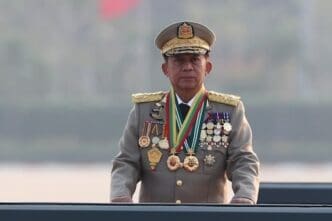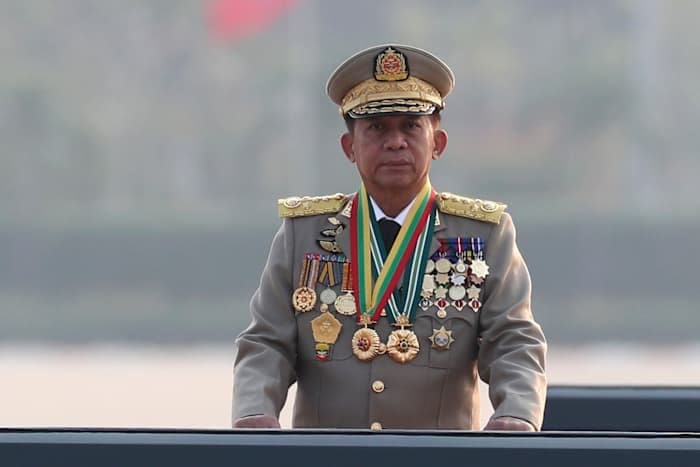The International Criminal Court’s chief prosecutor has made a significant move by requesting an arrest warrant for Myanmar’s military regime head, Senior Gen. Min Aung Hlaing, over allegations of human rights violations against the Rohingya Muslim minority.
Senior Gen. Min Aung Hlaing, who seized power from Aung San Suu Kyi in a 2021 coup, faces accusations of orchestrating crimes against humanity, particularly targeting the Rohingya population. This includes alleged deportation and persecution, which forced nearly a million Rohingya to flee to Bangladesh. Described frequently as ethnic cleansing, these actions involved mass atrocities, including rapes, killings, and the burning of homes.
Karim Khan, the ICC’s top prosecutor, has been active in addressing these crimes. During a visit to refugee camps in Bangladesh, he stressed the importance of justice for the Rohingya, indicating that more arrest warrants could be forthcoming. “We will be demonstrating, together with all of our partners, that the Rohingya have not been forgotten. That they, like all people around the world, are entitled to the protection of the law,” Khan stated.
The allegations against Myanmar’s military derive from a counterinsurgency campaign launched in August 2017 following an insurgent attack. The military, under Hlaing’s command, is accused of directing attacks on Rohingya civilians as part of these operations.
Myanmar is not a member of the ICC; however, Bangladesh is. This membership allows the court to investigate crimes deemed to have occurred on Bangladeshi soil, such as the forced migration of the Rohingya. In 2018, ICC judges ruled that investigations could proceed for crimes partially committed on the territory of a member state.
Khan’s predecessor, Fatou Bensouda, laid the groundwork in 2019 when the court approved an investigation into the situation. This has enabled the pursuit of justice for crimes extending beyond mere displacement over borders.
These developments occur against a backdrop of internal conflict in Myanmar, where a recent seizure of a key trading town by a rebel group on the Chinese border underscores ongoing instability. Additionally, Myanmar’s military government has been embroiled in intensified conflicts with ethnic minority groups seeking greater autonomy.
In 2022, separate proceedings at the International Court of Justice, brought forward by Gambia, accuse Myanmar of genocide against the Rohingya. Several European countries and Canada have backed Gambia’s case, illustrating international concern over the issue.
The actions by the ICC mark a critical step in holding Myanmar’s military leadership accountable for alleged atrocities against the Rohingya. These legal proceedings underscore a global demand for justice and highlight the persistent challenges faced by the Rohingya community.
Source: News4jax








